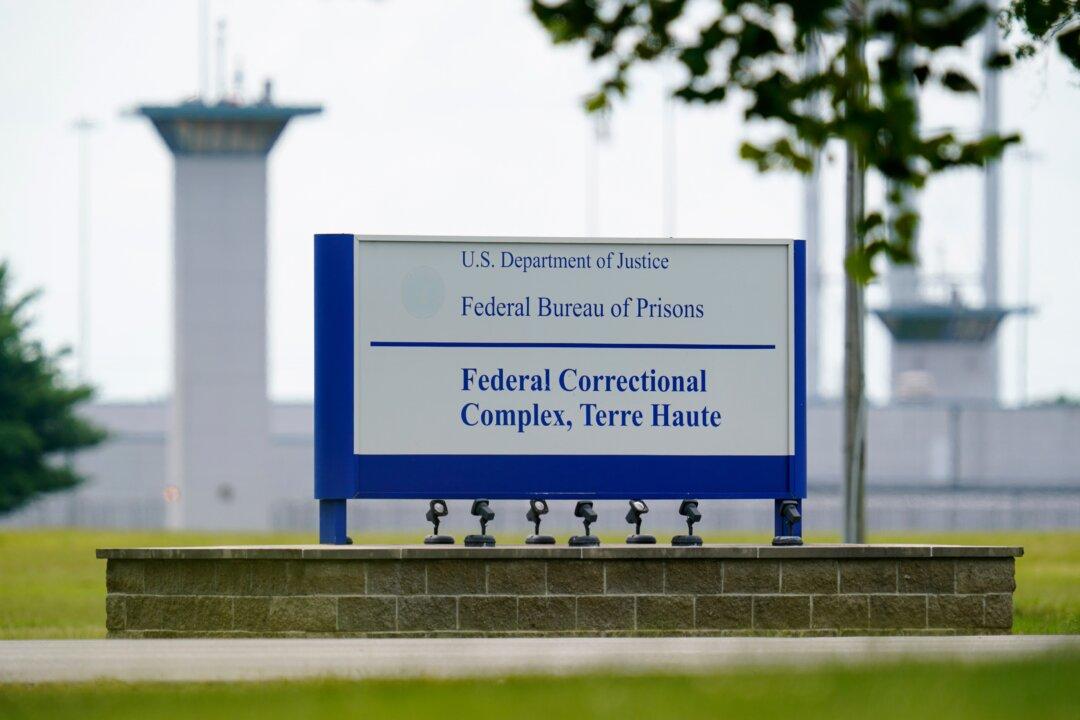WASHINGTON—The two attorneys representing the first woman scheduled to be put to death by the U.S. government in more than six decades are seeking to delay her execution because they’ve contracted coronavirus visiting their client.

The federal prison complex in Terre Haute, Ind., on Aug. 28, 2020. Michael Conroy/AP Photo
|Updated:




